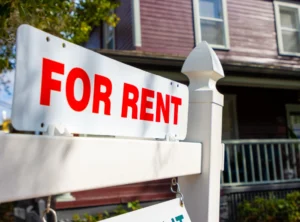New Landlord-Tenant Retaliation Law Difficult to Navigate
 According to Peter G. Aziz Esq., of the The Law Offices of Peter G. Aziz & Associates LLC, a recent New Jersey state law that prohibits landlords from retaliating against tenants may be helpful to both landlords and tenants alike.
According to Peter G. Aziz Esq., of the The Law Offices of Peter G. Aziz & Associates LLC, a recent New Jersey state law that prohibits landlords from retaliating against tenants may be helpful to both landlords and tenants alike.
By spelling out the rules more clearly, landlords can prevent liability, while tenants can enter into lease contracts more fully informed.
The law says a landlord cannot retaliate against a tenant who has exercised a legal right. However, determining whether the tenant has exercised a ‘legal right’ can be difficult. According to Azziz, these rights may include:
Complaining to the landlord about unsafe or illegal living conditions;
Reporting issues to a government agency such as a building or health inspector about unsafe or illegal living conditions;
Assembling and presenting tenant views collectively ” for example, by joining or organizing a tenant union.
Mr. Aziz notes that the most common legally exercised right by tenants is withholding rent from a landlord due to uninhabitable living conditions.
Tenants are afforded the right to withhold rent from their landlords, however that right is narrowly tailored and must be exercised with precaution, Azziz says.
New Jersey tenants are legally entitled to rental property that meets basic structural, health, and safety standards and is in good repair. If a landlord fails to take care of important maintenance, such as a leaky roof or a broken heater, tenants have several important legal rights, including:
The right to withhold rent until repairs are made; and,
The right to repair and deduct — that is, to hire a repairperson to fix a serious defect that makes a unit unfit, or buy a replacement part or item and make the repair, and deduct the cost from the rent.
However, before a tenant can withhold rent or use the repair and deduct remedy, the tenant must make sure that it is justifiable.
From the landlords perspective, it is important that he or she is aware of when a tenant may actually ˜abate or withhold rent,” Azziz explains. “The tenant must comply with state legal requirements before taking such action. Those requirements include notice to the landlord of the condition causing the tenant to contemplate abating rent. Landlords must also be aware that, under the NJ Law, a tenant may offset rent by paying for the repair themselves.
The New Jersey law covers a vast majority common retaliatory acts by landlords. Those include:
Terminating a tenancy or filing an eviction lawsuit;
Increasing the rent; or,
Decreasing services, such as locking the laundry room.
However it is important to note that if a tenant fails to request a renewal of a lease or tenancy within 90 days of the tenancys expiration (or by the renewal date specified in the lease if longer than 90 days), a landlord may terminate or not renew without a presumption of retaliation.
Before taking any action against a tenant or landlord, be sure to check your local housing ordinances, particularly if the property is covered by rent control, for any city or county rules that protect tenants from landlord retaliation. To find yours, Azziz suggests calling your mayor or city managers office or check your city or county website. For more information, visit The Law Offices of Peter G. Aziz LLC at http://www.pgaalaw.com, email attorney(at)pgaalaw.com or call 201-562-6202.
With AAOA, landlords have resources at their fingertips. Check out our new Landlord Forms Page.
American Apartment Owners Association offers discounts on products and services for landlords related to your rental housing investment, including rental forms, tenant debt collection, tenant background checks, insurance and financing. Find out more at www.joinaaoa.org.













 Accessibility
Accessibility